
A GLP-1/GIP dual agonist in both subcutaneous and oral tablet formulations and a novel dual amylin and calcitonin receptor agonist lead the company's pipeline for antiobesity medications.

A GLP-1/GIP dual agonist in both subcutaneous and oral tablet formulations and a novel dual amylin and calcitonin receptor agonist lead the company's pipeline for antiobesity medications.
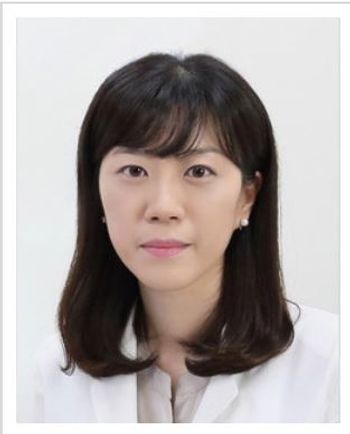
Premature menopause, authors said, should be included in diabetes management guidelines as a risk factor to support screening and prevention.

Pharmacologic treatment to prevent episodic migraine should follow a sequential trial approach that considers medication cost, headache triggers, adherence, and lifestyle interventions.
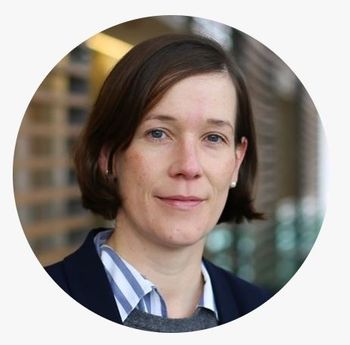
With no FDA-approved treatments for moderate-to-severe chronic hand eczema in the teen population, the late-stage topline data are very promising.
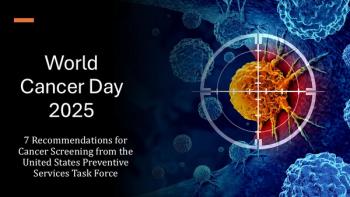
World Cancer Day 2025 urges focus on the unique personal journey underlying every cancer diagnosis; individual recommendations for regular screening is where that can start.

GH001, an inhalable 5-MeO-DMT therapy, led to a -15.5 MADRS score reduction by day 8 in patients with treatment-resistant depression.

Suzetrigine (Journavx) PI Todd Bertoch, MD, identifies the sweet spot where he thinks the new NaV1.8 inhibitor will be most effective in post-surgical and other moderate-to-severe acute pain.

Agitation is the most common disabling neuropsychiatric symptom experienced by individuals with Alzheimer dementia; Grossberg explains how common in this short interview.

The global burden of migraine rose by 58% between 1990 and 2021 to more than 1 billion, a pace projected to continue and most rapidly among men and young people.
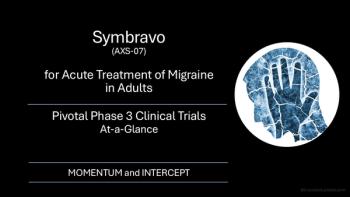
The pivotal INTERCEPT and MOMENTUM phase 3 clinical trials served as foundational evidence for the efficacy of the combination therapy across migraine presentations.

Mariano, a well-known researcher in regional anesthesiology and acute pain medicine, talks about the Journavx difference, including the drug's safety profile.

Todd Bertoch, MD, reviews the significant findings on relief of pain from the 2 pivotal studies and lauds the remarkable safety profile of the novel nonopoid analgesic Journavx.

Journavx is the first and only approved non-opioid oral pain signal inhibitor and the first new class of pain medicine approved in more than 20 years.

A single oral dose of Symbravo provided rapid migraine pain freedom and return to normal functioning within 2 hours, and sustained efficacy through 24 and 48 hours.

Although the study missed the primary endpoint, subgroup analyses found variable efficacy based on baseline BECs, suggesting potential benefits in specific subgroups.


Close monitoring for dnPPHTN during the first 2 weeks post-delivery is highly recommended for women determined to be at high risk for the hypertensive disorder of pregnancy.

Cebranopadol developer Tris Pharma expects to submit an NDA to the FDA for the dual-NMR agonist to treat moderate-to-severe acute pain later this year.

The novel dual NMR agonist was scored significantly less "likable" when crushed and taken intranasally compared with oxycodone, the company reported.

The 2 newly approved COPD therapies have been added to the GOLD guidelines section on follow-up therapy, expanding clinical options for specific patient types.


The investigational and potentially first-in-class therapy may enhance AMPA receptor sensitivity to glutamate, enhancing neuronal transmission.
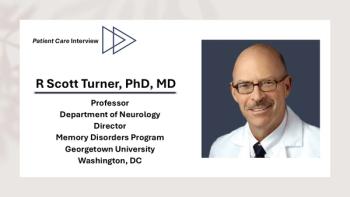
Dr Turner reviews the profile of the individual who is most likely to benefit from lecanemab therapy.

In preliminary findings of the phase 2b QUALITY trial, 32% of weight loss in the semaglutide group was from lean mass reduction vs 9.4% in the combined semagutide/enobosarm group.

Tapinarof 1% cream when used as topical monotherapy led to statistically significant and sustained improvements in QoL, sleep, and other PROs across age groups.
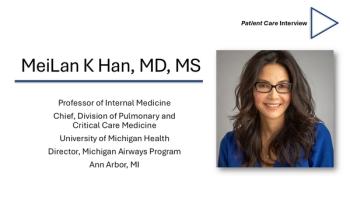
Professor MeiLan Han, MD, MS, details inclusion of the 2 new medications and how the additions reflect a focus on disease heterogeneity and precision medicine in in COPD.

Georgetown University memory disorders expert R Scott Turner, PhD, MD, reviews the science behind approval of lecanemab for monthly maintenance dosing of lecanemab.

Once every four weeks maintenance dosing of lecanemab may be easier for patients and care partners to continue treatment.
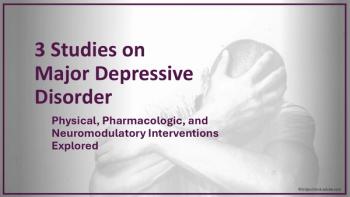
Findings on the efficacy of treatments for MDD include the favorable effects of exercise, of CBT, and the robust outcomes of ECT among neuromodulatory modalities.
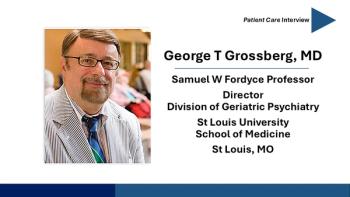
When a patient with Alzheimer dementia becomes agitated, check the physical environment for a trigger before pulling the trigger on a medication, dementia expert George Grossberg, MD, recommends.